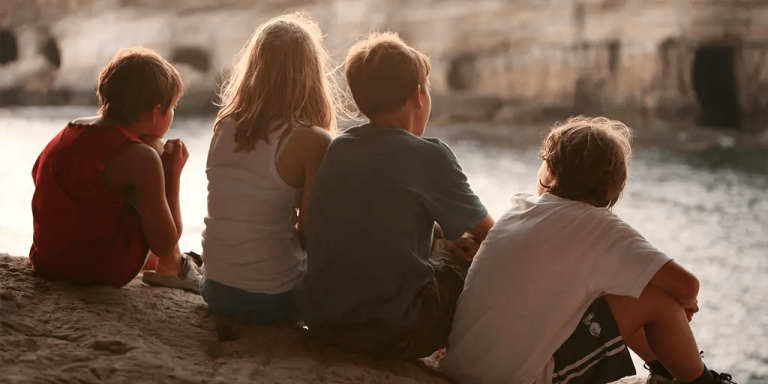from climaterealism
Author: Linny Luken
A post on the British website Future Net Zero (FNZ) claims that climate change is causing anxiety in children. This is wrong. Since climate change is imperceptible and weather is not becoming more extreme, it is only the constant stream of media scare stories and misconceptions promoted in schools that the planet is doomed if climate action is not taken immediately. Children bring trauma. This makes groups like FNZ, and those they reference in their stories, complicit in damaging children's mental health.
The article, titled “Climate change triggers anxiety in children,” discusses a “new campaign” launched by a renewable energy company called 100Green to promote the findings of a study conducted by Save the Children. The study found that 70% of children surveyed “are struggling with climate anxiety.”
The article itself, while short, gives you some whiplash of climate alarm to read, from Gwen Hines of Save the Children advising parents to “stay positive when it comes to combating climate change” with their children 's quote, essentially saying that unless her preferred policies are enacted, the child is essentially doomed.
Hines said this generation of children “will inherit a deeply unequal world if immediate action is not taken” and that their anxiety was “justified” due to the so-called climate crisis and “growing inequality”.
In fact, Earth has never been a safer place to live.
Temperature-related deaths and deaths from extreme weather have declined globally due to modern technologies made possible by the use of fossil fuels. The decline has also been significant, about 99% over the past 100 years, despite (and perhaps partly due to) the modest warming that has occurred over the same period. (see picture below)

Nor are hurricanes, wildfires, tornadoes, or floods getting worse, so it's unlikely that kids will “experience” anything that would make them think the climate is getting worse. Furthermore, contrary to repeated claims in the media, the snow, polar bears and islands have not disappeared.
Amid these facts, why are children scared and concerned that they face climate catastrophe?
The answer is simple and clear: media coverage and school promotion.
as climate realism As has been discussed several times now, the media's constant promotion of misinformation and fear mongering about every weather event, linking them to climate change without evidence, unsurprisingly has an impact on children. This is intentional. As is the case in New Jersey schools, there is a push to incorporate climate alerts into classroom curricula in seemingly non-climate-related subjects, such as ceramics and physical education. I myself experienced this “every class is a climate” pilot program when I was a student in a public school in Illinois. Students don’t need this coverage; it’s being drilled into them before they’re old enough to understand what the decarbonization policies they advocate mean.
Incidentally, FNZ's post also claimed that today's children “will face seven times more heatwaves in their lifetime than their grandparents did”. This is also wrong and is a great example of how climate alarmist groups spread misinformation to scare people, especially children. climate realism Warnings about heat waves have been debunked many times, but in essence, weather history does not show that heat waves are becoming more extreme or more frequent in the United States or Europe.
FNZ, Save the Children, and the media and educators who echo others and promote climate misinformation are responsible for children's fear of climate change. They tell their children that the world will end unless their parents and leaders take the radical decarbonization they demand. This wording is so divorced from reality and so harsh that some media have even begun to question whether it is counterproductive.
FNZ and other similar groups benefit from generations of fear. It gained them financial support and political influence. It’s disgusting that they are damaging children’s mental health through their propaganda efforts and then using the anxiety they generate among children as evidence that the world needs to be completely decarbonized – it’s for the children after all.
Relevant
